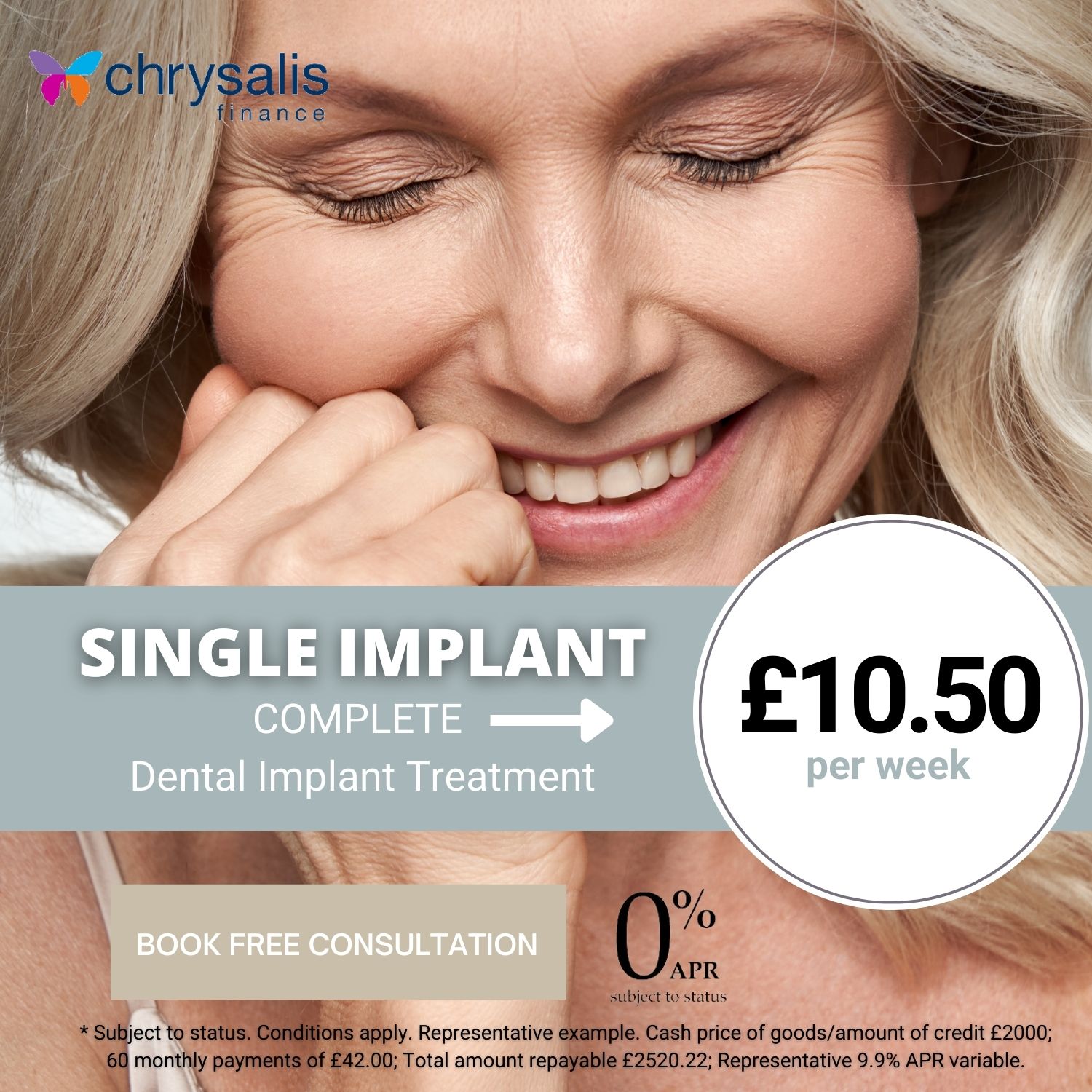Dental implants can be a valuable adjunct to many other dental treatments. We will provide a detailed evaluation and comprehensive dental assessment to decipher the best and most appropriate treatment for you.
Home > Implant Dentistry > Process > Step by Step Process
Step 1: Consultation & Examination
The first stage involves fully understanding your exact needs. We want to understand your preferences and what you are trying to achieve with implant dentistry.
Then, we carry out a highly detailed examination of your teeth, gums, smile and general mouth.
Implant treatment first entails a complete medical history which is very important before commencing surgical procedures.
We want to be prepared in case of any medical complications that may become a contraindication to implant treatment.
These days as long as your medical condition is stabilised and under control, there are not many cases we cannot treat.
However, we must understand your medical situation to provide the best care possible.
- We may also need to take some other records such as photographs and radiographs (X-rays) to help evaluate the condition of your teeth and mouth.
- In most cases, we will also need a CBCT scan – this provides us with 3D images of your jawbone. We need to evaluate the quantity and quality of your jawbone in the area we are considering dental implants.
- We may also choose to take impressions of your mouth to construct study models to assimilate your biting and chewing patterns on an articulator (an assimilator of your jaw joints).
- We can then create a wax-up model that shows you what your teeth will look like after the treatment.
Step 2: Implant Treatment Planning
Once we have a better understanding of your mouth, we will discuss all the different choices and options available to you.
We specialise in customising your treatment plan to suit your specific requirements.
Over the last 50 years, improvements in innovations and technology of dental implants have meant that numerous implant systems are available in the market that all do small varying things.
Hence, this can create much confusion. Therefore, we choose the most appropriate method for you that exhibits the most optimal compatibility for your specific case.
Our Treatment planning looks at both your functional requirements (chewing ability) and your aesthetic needs.
The design and placement of the particular implant system are based on what we are trying to achieve.
Pay Monthly With 0%
Pay monthly with 0% interest for amazing, discreet dental solutions that realign your smile. Our recommended implant treatments have left thousands of our patients feeling better and more confident about their appearance and the way their smile functions.
Step 3: Implant Surgery – Placement of Implant(s)
In a straightforward case, this would be the stage in which we surgically place the implant in the jawbone.
The dental implant procedure is dependent on the choice of the implant system.
After that, a “healing cap” is placed on the implant. The healing cap prevents the bone from migrating inside the implant.
Once the surgery is over, the gum is replaced over the implant and jawbone.
We will then need to wait for approximately 3-6 months for healing.
You may not be fitted with a temporary denture or bridge at this stage. Best healing occurs with no loading (chewing forces) on this site.
Step 4: Restoring the Dental Implant
After healing has occurred and the dental implant has integrated with the jawbone (osseointegration), impressions are taken to start restoring the implant so that you can regain your chewing ability and aesthetics.
The process will depend upon your treatment plan’s specific restoration and prosthesis of choice.
The last stage is Review & Aftercare.
Regular reviews are essential to maintain the health of your dental implant treatment. Routine hygiene appointments are also necessary to prevent any infection from affecting the treatment.


Before & After Gallery
See what our patients look like before and after implants so you can gain a better idea of how they’re going to look and work for you.


